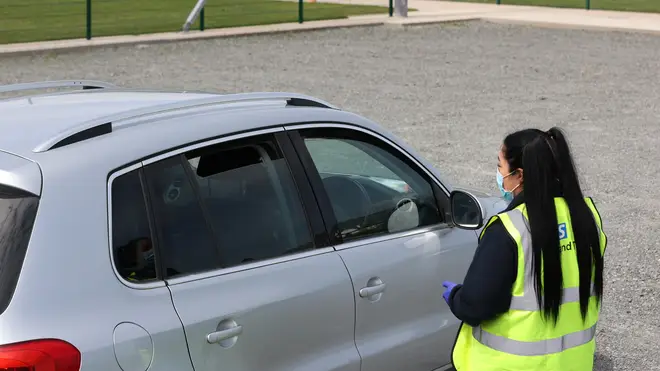
Nick Ferrari 7am - 10am
14 December 2021, 13:34

The Chartered Trading Standards Institute says it has seen evidence of fraudulent messages sent to the public.
The public has been warned of scam text messages and emails that use the Omicron variant of Covid-19 to attempt to scare people into handing over personal information.
The Chartered Trading Standards Institute (CTSI) said it has seen evidence of messages being sent to the public pretending to be from the NHS, asking people to “apply now for Omicron PCR test to avoid restrictions”.
The scam message claims that older PCR tests cannot detect the Omicron variant and that a new type of test is needed and that people should sign up for it – claiming those who refuse to be tested will be forced to isolate.
The fake message then links to a website mimicking the official NHS site and asks people to fill in a form of personal details which the CTSI warns could be used to access personal information, including bank accounts.

CTSI lead officer Katherine Hart said: “It disgusts me that scammers are jumping on the public’s fears about the Omicron variant in an attempt to steal their personal data.
“All of the claims in the email are false. The public is especially vulnerable at this time, and I call on everyone to share this message so that we can minimise the impact of this scam.
“This is by no means the first time fraudsters have used the pandemic for their gain – since March 2020, the unscrupulous have angled their scams on everything from bogus Covid-19 business support grants and vaccination bookings to fake vaccine passes.
“It is also crucial that the public reports this scam to the authorities. By doing so, the public aids consumer protectors in mapping out the problem and recognising the sheer scale of it.”
Anyone who encounters a scam is encouraged to contact Action Fraud via actionfraud.police.uk or by calling 0300 123 2040; in Scotland, contact Advice Direct Scotland on 0808 800 9060; or if in Northern Ireland, contact Consumerline on 0300 123 6262.